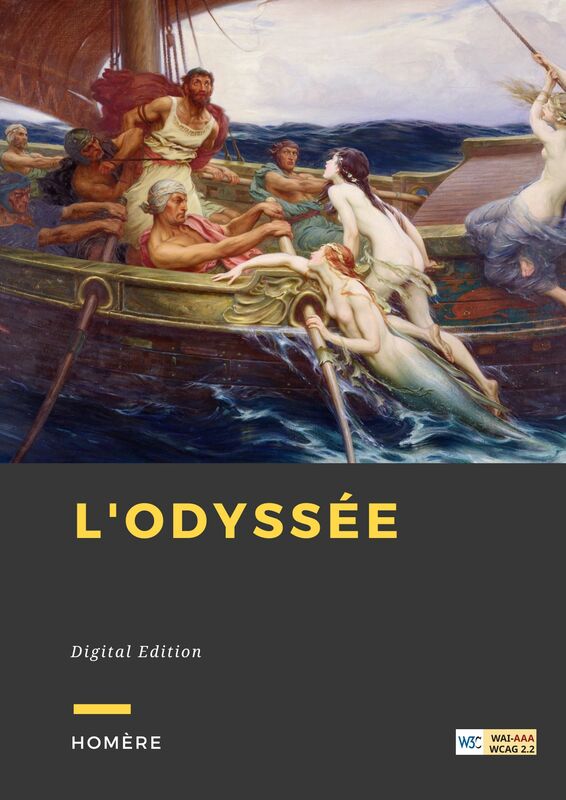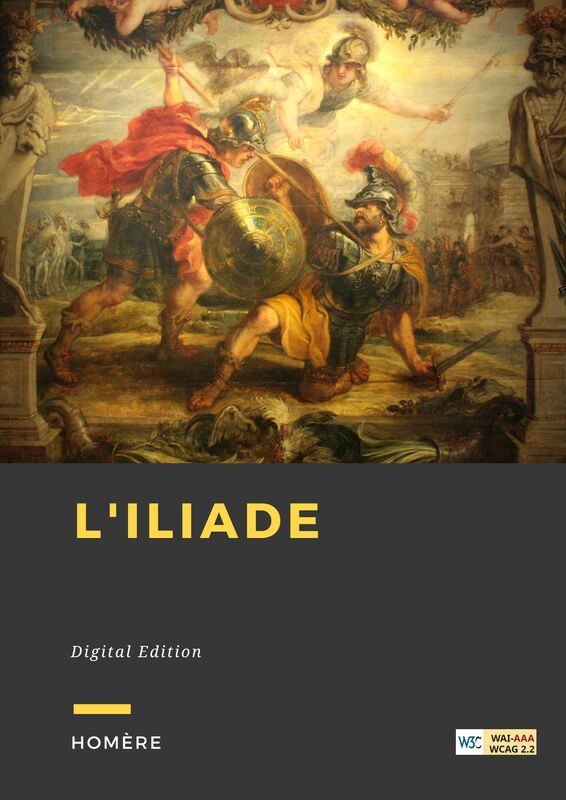
L'Odyssée
Homère
L'Odyssée
Homère
Homer's Odyssey is the ultimate adventure story, chronicling Ulysses' extraordinary ten-year voyage home to Ithaca after the Trojan War. This epic sequel to the Iliad introduces us to one of literature's most cunning heroes as he faces mythical creatures, vengeful gods, and impossible challenges. From the enchanting Sirens to the terrifying Cyclops, from the temptress Circe to the faithful Penelope, the Odyssey presents a rich tapestry of characters that have become archetypes in world literature. The epic explores themes of loyalty, identity, and the meaning of home while showcasing the power of intelligence and perseverance over brute strength. Ulysses' encounters with the supernatural world reveal ancient Greek beliefs about fate, divine intervention, and the relationship between mortals and gods. The parallel story of Penelope's patient wait and Telemachus' coming of age adds depth to this tale of separation and reunion. More than an adventure story, the Odyssey is a meditation on what it means to be human, the value of home and family, and the transformative power of experience. Its influence on Western literature is immeasurable, providing the template for countless journey narratives and hero's quests.
A propos de l'auteur
Homère (VIIIe siècle av. J.-C.), poète légendaire de la Grèce antique, est l'auteur présumé des deux plus grandes épopées de l'Occident : l'Iliade et l'Odyssée. Figure emblématique de la littérature mondiale, il est souvent représenté comme un aède aveugle parcourant la Grèce pour réciter ses vers.
